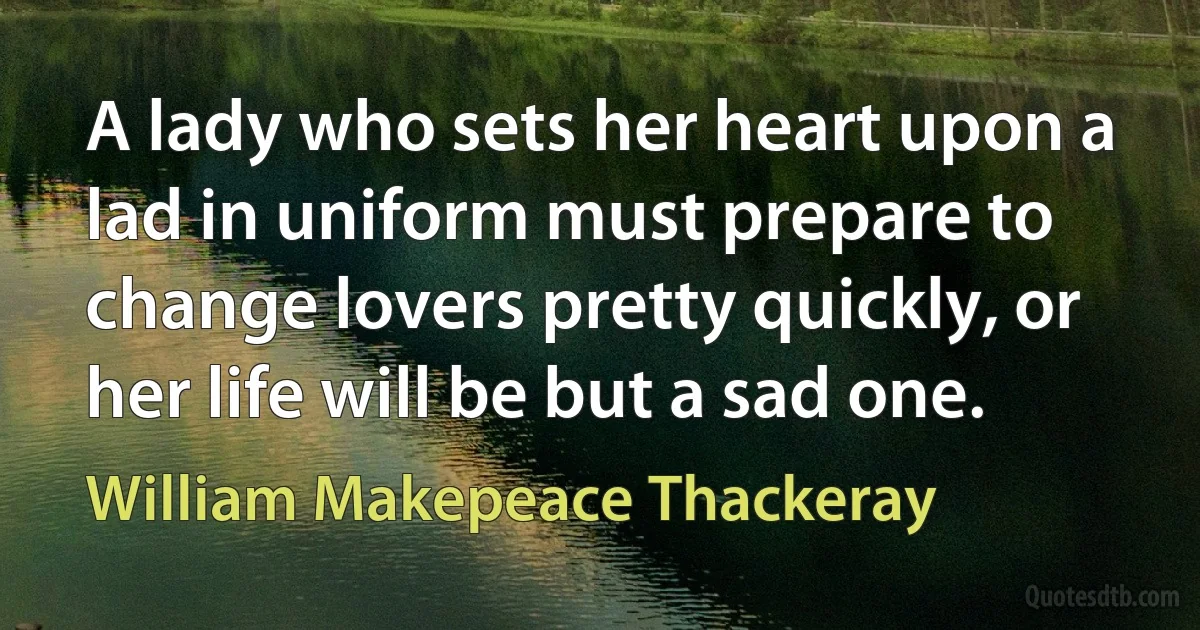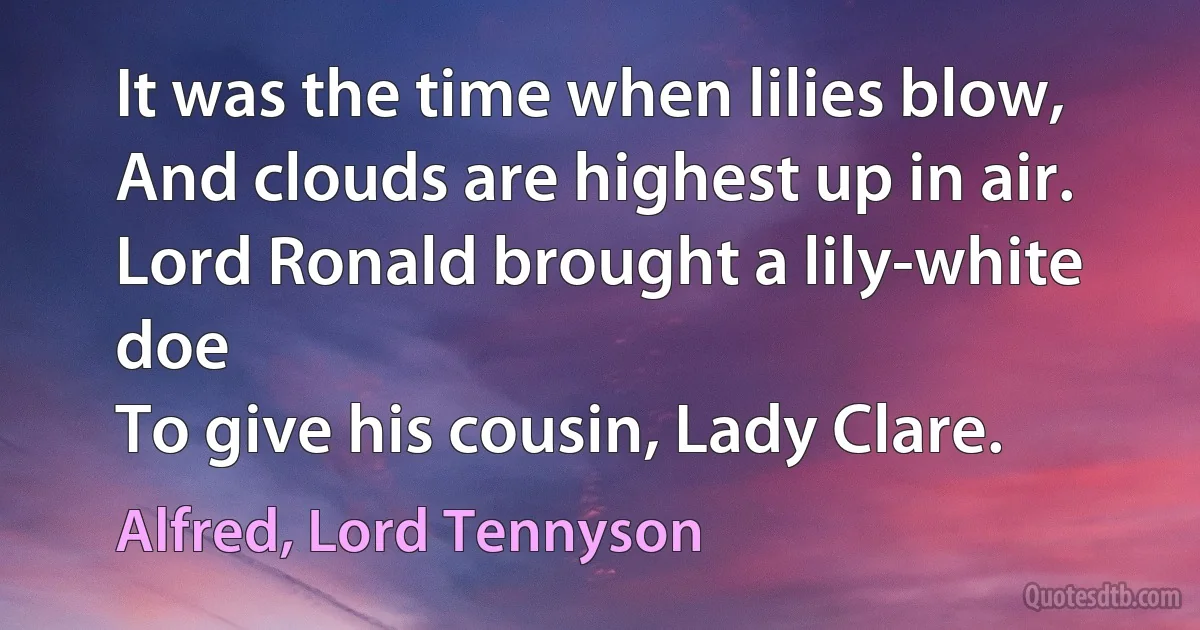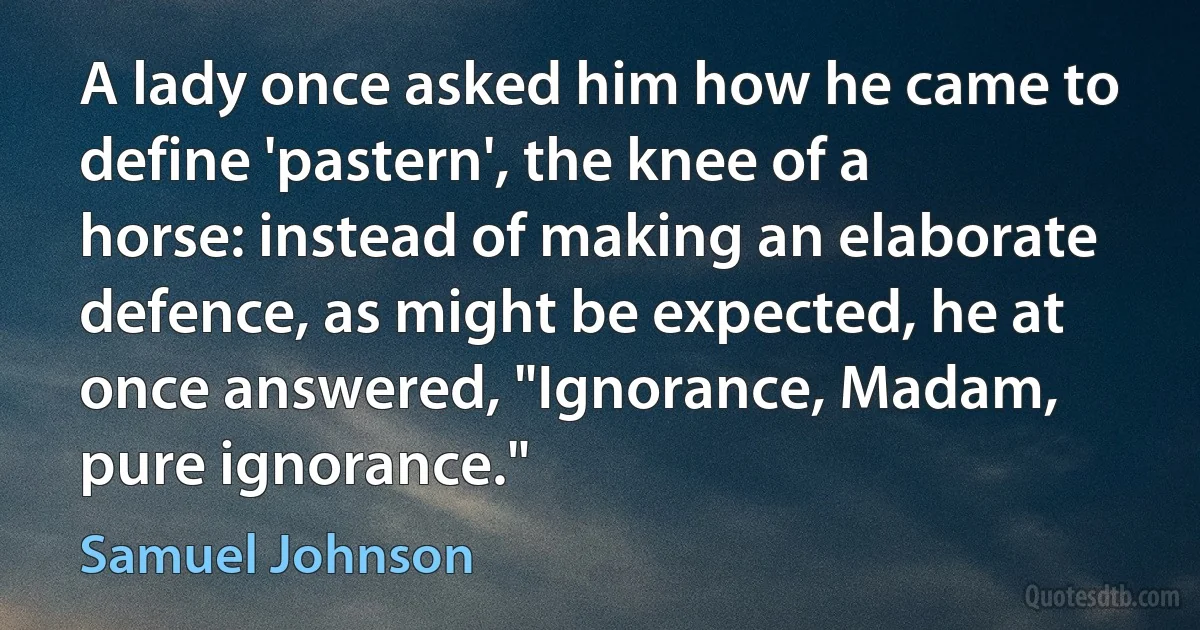Lady Quotes - page 10
The movie industry is run by accountants in Hollywood and it's as simple as this; everyone has a number on their computer. They can look up Jeremy Irons and see what my last five movies have made. Say you want to make a $20m picture, which is relatively cheap. If Jeremy makes $9m, the director makes $5m, then you need a leading lady, and they just go through those figures - that's how casting happens. And none of my movies has made a lot of money.

Jeremy Irons
Lying, robed in snowy white
That loosely flew to left and right -
The leaves upon her falling light -
Thro' the noises of the night,
She floated down to Camelot:
And as the boat-head wound along
The willowy hills and fields among,
They heard her singing her last song,
The Lady of Shalott.
Heard a carol, mournful, holy,
Chanted loudly, chanted lowly,
Till her blood was frozen slowly,
And her eyes were darkened wholly,
Turn'd to tower'd Camelot.
For ere she reach'd upon the tide
The first house by the water-side,
Singing in her song she died,
The Lady of Shalott.

Alfred, Lord Tennyson
Out upon the wharfs they came,
Knight and Burgher, Lord and Dame,
And around the prow they read her name,
The Lady of Shalott.Who is this? And what is here?
And in the lighted palace near
Died the sound of royal cheer;
And they crossed themselves for fear,
All the Knights at Camelot;
But Lancelot mused a little space
He said, "She has a lovely face;
God in his mercy lend her grace,
The Lady of Shalott."

Alfred, Lord Tennyson
The atmosphere at the conference was frankly hostile. (...) It was up to people from the audience to protest and oblige the chairperson to allow me to read out my paper. When it was my turn, I was heckled somewhat by the Leftist crowd, especially by a well-known Indo-American Communist academic, who was rolling his eyes like a madman and making obscene gestures until an elderly American lady sitting next to him told him to behave. At the end, Mathew came to collect a copy of my text (the book version, of which I had some author's copies handy), called me a "liar, and told his buddies that they needed to write a scholarly rebuttal. Which is still being awaited today.

Koenraad Elst
Eleanor Roosevelt, fine, precise, hand-worked like ivory. Her voice was almost attractive ... One had the impression of a lady who was finally becoming a woman, which is to say that she was just a little bitchy about it all; nice bitchy, charming, it had a touch of art to it, but it made one wonder if she were not now satisfying the last passion of them all, which was to become physically attractive, for she was better-looking than she had ever been.

Norman Mailer
The object of a ceremony is not to be beautiful, though that is a valuable element. The object of a ceremony is to be ceremonious. Ritual is a need of the human soul - nay, it is rather a need of the human body, like exercise. A man does not take off his hat to a lady because he looks nicer without it; the instance of bald men would be alone sufficient to upset such an explanation. He does it because you must positively do something when you meet a lady, or your whole civilisation goes to pieces; and taking off your hat is easier than taking off your necktie or lying face downwards on the pavement.

G. K. Chesterton
What Elizabethan playwrights learned from the Greek classics was not theories of insanity, but dramatic practice - that is, madness is a dandy theatrical element. It focuses the audience's attention and increases suspense, since you never know what a mad person may get up to next; and Shakespeare himself makes use of it in many forms. In King Lear, there's a scene in which one man pretending to be mad, another who has really gone mad, and a third who has probably always been a little addled, are brought together for purposes of comparison, irony, pathos, and tour de force acting. In Hamlet, there are two variations - Hamlet himself, who assumes madness, and Ophelia, who really does go winsomely bonkers. In MacBeth, it's Lady MacBeth who snaps.

Margaret Atwood
When I first came to Miami [in 1959], you'd see signs like "No Children, No Pets, No Cubans." We were a major threat. We lived in a very small apartment behind the Orange Bowl, where all the Cubans lived. All the men (including my father, Jose Manuel Fajardo) were political prisoners in Cuba, and it was purely women and their kids. There was one car the whole community bought for $50, and the one lady that could drive would take everybody to the supermarket and the Laundromat.

Gloria Estefan



